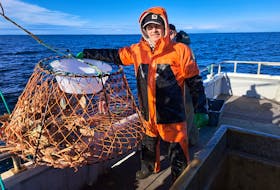When food trends appear in the media, nutrition, weight loss, increased energy and our pocketbooks are usually the focus. Rarely do we hear about the ways that superfoods affect the people who produce them. Nor does public health policy often move past health to the global impact of modern food choices.
I’ve been described as a health food junkie, “granola,” hippie, and many other colourful terms used to describe people who would rather eat nutritional yeast (hippie dust) on popcorn than cheese, or who think adding chia seeds to pancakes is a treat.
The environmental devastation and the socio-economic effects of our increasing consumption of foods like quinoa, almonds and cashews, to name just a few, are shocking.
However, not only was I raised on a diet of local (as much as possible) whole foods, I was also raised to be conscious of the environmental and social injustice around the world.
In recent years, as the foods I enjoy have gained popularity, it has become increasingly important to consider how those foods are being processed and the effects they are having in the world. I often find myself at a crossroads of how to mediate the desire to ingest healthy food with the impacts associated with producing some of those foods.
The environmental devastation and the socio-economic effects of our increasing consumption of foods like quinoa, almonds and cashews, to name just a few, are shocking. Yet they are seldom portrayed as such in the news.
In Bolivia, the growing demand for quinoa has affected the economy and the livelihoods of farmers. Initially, the growing need for quinoa acted as a boon, giving some farmers a chance to make a profit. However, as the demand has outgrown what can be produced in Bolivia, survival of Bolivian farmers is now being threatened.
Unlike common perceptions, this is not because farmers are selling their main source of nutrition. Rather it is due to a combination of the value of quinoa falling as it begins to be produced in other areas of the world, as well as the environmental effects of high demand which has led to less crop rotation and consequential soil erosion.
The cashew is often dubbed the favourite nut in Europe and America. What many do not know is that the acidic liquid between the two shells of the cashew nut can cause chemical burns. Since many employers in the cashew business do not provide their workers gloves, many employees have permanent chemical scarring on their hands. In 2015, this resulted in 17,000 cashew workers going on strike in India, asking for better working conditions.
Even in California, the impact of growing almonds has severe environmental and public health consequences, as increasing demand for the nuts results in the irresponsible use of limited water sources. Almonds have been linked to many positive health results, but diverting water from salmon streams affects the availability of the heart-healthy king salmon, another much-touted superfood, among other negative outcomes.
Just as Apple needs to evaluate the environmental impact it is having in China, where their electronics are produced, so too do we need to evaluate the impact that the foods we eat have on the people who are growing the food. And then we have to do something about it.
If, like me, you feel overwhelmed by the thought of having to research anything you want to eat to ensure that it is not linked with negative environmental and health impacts, I have two simple suggestions:
- Eat local — Concentrating on truly eating locally will improve local economies and reduce the environmental impact of shipping. However, by buying locally you are also more easily able to track where your food comes from and the impact that it is having.
- Be proactive — Of course, eating only locally produced foods isn’t always possible. In this area, building better public policies to protect the global economy and regulate where food comes from and how it is produced is important. Make an effort to be heard, and be heard fighting for more coverage of the negative effects of trendy foods. Facebook, Twitter and Instagram are all important venues through which we can advocate for better food policies at the local, national and international level.
Eve Van Dommelen
St. John’s
(Originally from Anchorage, Alaska)








